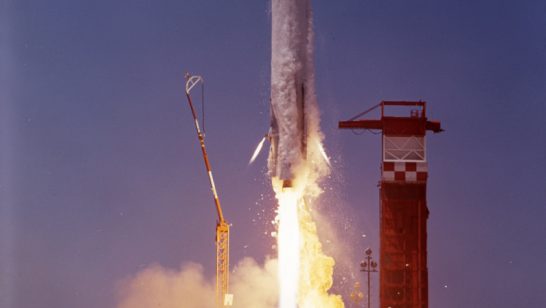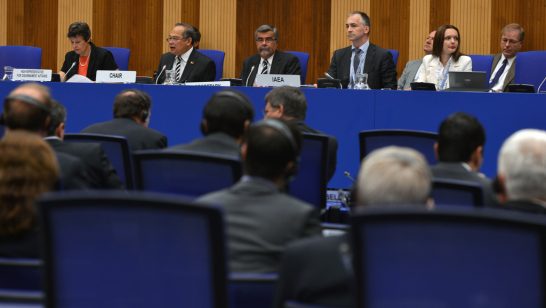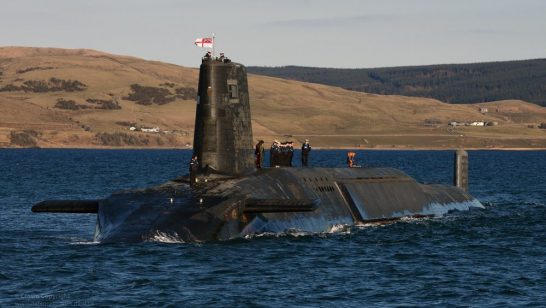This statement first appeared in French on the Journal du Dimanche website. The initiative is led by the Initiatives for Nuclear Disarmament (IND), a French organisation which partners with the European Leadership Network.
When you are elected President on 7 May 2017, you will have to discharge heavy responsibilities, including the defence of France. Our institutions grant the President the power to order the use of nuclear forces. As soon as you are inaugurated, you will receive the nuclear codes from your predecessor.
We strongly wish the new presidential term to be marked by genuine action on the part of France in favour of the goal of a world without nuclear weapons to which it is solemnly committed.
Indeed, the main threats to our security currently come from terrorism, cyber-attacks, organised crime, pandemics, or climate change and cannot be deterred by a nuclear arsenal.
If inter-state risks have not completely disappeared, despite a real decrease in the number of nuclear weapons in the world some 15,000 such weapons continue to threaten the entire planet with catastrophic destruction. According former US Secretary of Defense William Perry, the likelihood of such a conflagration has never been as high as today.
The Non-Proliferation Treaty (NPT) could not prevent the emergence of four new nuclear-armed states (Israel, India, Pakistan, and North Korea) in unstable regions. Despite their commitment to negotiated disarmament, the other nuclear powers, including France, have launched a new and costly arms race, planning the modernisation of their arsenals, with increased reliance on cruise missiles, miniaturisation of warheads, maintenance of tactical weapons, development of hypersonic missiles, etc. All these developments contribute to lowering the threshold of use of nuclear weapons, without mentioning the invisible threat of cyber-attacks and the danger of terrorist or accidental nuclear explosion.
It is no longer reasonable to remain stubbornly attached to a weapon that many military and strategic experts agree to consider as obsolete and inadequate. Moreover, it is now known for certain that the use, even limited, of nuclear weapons in the world would entail catastrophic consequences for the whole humankind. How is it possible to reconcile such prospects with France’s attachment to respect for international humanitarian law and the protection of civilians in conflicts? Hasn’t France been one of the main initiators or supporters of the Biological and Chemical Weapons Conventions, and the treaties prohibiting antipersonnel landmines or cluster munitions or regulating the arms trade? How can one conceive that the security of our country relies on our capacity to annihilate millions of innocent civilians?
We are not advocating France’s unilateral disarmament, but we call on you to seize the historic opportunity offered to our country to lead the way to negotiated, verifiable, and universal disarmament by joining the some 132 states that will negotiate a treaty prohibiting nuclear weapons at the United Nations. This will create a new point of departure that will not only reinforce the obligations derived from the NPT but will also show the way to the other nuclear-armed states that are absent from that Treaty. France will thus have seized the opportunity to take the lead of a movement towards the goal of a world free of nuclear weapons.
Signed by:
- Sébastien Balibar, physicist, member of the French Academy of Science
- Rony Brauman, former president of Doctors without Borders (MSF)
- Valérie Cabanes, international laywer
- Gilles Candar, president of the Jaurès Studies Society
- Jean-Marie Collin, vice-president of Initiatives for Nuclear Disarmament (IDN)
- Michel Drain, member of Pax Christi and Justice & Peace France
- Jean-Pierre Dupuy, philosopher, professor at Stanford University
- Marc Finaud, former French diplomat, Senior Advisor to the Geneva Centre for Security Policy (GCSP)
- Christiane Hessel
- Bernard Hourcade, senior researcher at the French National Centre for Scientific Research (CNRS)
- Nicolas Hulot, president of the Foundation for nature and Humankind
- Yannick Jadot, member of the European Parliament
- Alain Joxe, president of the Research Centre on Peace and Strategic Studies (CIRPES)
- Georges Le Guelte, former Secretary of the Board of Governors of the IAEA
- Brig. Gen. (retd.) Francis Lenne, Air Force
- Gen. (retd.) Bernard Norlain, Air Force, vice-president of Initiatives for Nuclear Disarmament (IDN)
- Ivar Ikeland, former Chancellor of the Paris-Dauphine University
- Jean-Claude Pecker, emeritus professor at the Collège de France, member of the French Academy of Science
- Paul Quilès, former French Minister of Defence, president of Initiatives for Nuclear Disarmament (IDN)
- Bishop Marc Stenger, president of Pax Christi France
- Annick Suzor-Weiner, president of Pugwash France, emerita professor at Paris-Sud University
- Thierry Salomon, co-chairman of the #LesJoursHeureux movement
More information can be found on the website of Initiatives for Nuclear Disarmament (IDN).
The opinions articulated above represent the views of the signatories and do not necessarily reflect the position of the European Leadership Network or any of its members. The ELN’s aim is to encourage debates that will help develop Europe’s capacity to address the pressing foreign, defence, and security challenges of our time.



